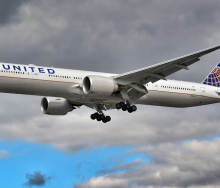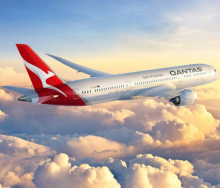Forty kilometres south of the Rwandan capital, Kigali, the construction of a $2 billion (R36 billion) airport has started – and hopes are high that the new Kigali airport will become a hub for African air travel, reports cnn.com.
The 130 000 sqm terminal building is expected to be completed in 2026 and is intended to accommodate eight million passengers a year, a figure that is expected to rise to over 14 million in the following decade. The cargo terminal adjacent to the terminals will be capable of storing 150 000 tonnes of cargo.
The existing Kigali International Airport is to remain operational for special arrivals, some chartered flights and a pilot training school. Pre-pandemic the airport was handling around one million passengers a year, but expansion was encumbered by its geographic location, on top of a hill, surrounded by human settlement.
Rwandan government-owned company, Aviation Travel and Logistics Holding, will be overseeing the construction, and Qatar Airways will have 60% ownership of the new airport.
According to cnn.com, this partnership will help landlocked Rwanda, situated in the centre of Africa, achieve its aim of becoming the continent’s hub for air travel.
“The main objective of this effort is basically to make sure that Rwanda becomes an African hub where everyone will be transiting either for tourism, but also for business and different industries,” said Aviation Travel and Logistics Holding CEO, Jules Ndenga.
The Qatari carrier is also to acquire 49% in shares in RwandAir. There is already a codeshare agreement between the two airlines, giving passengers access to 65 destinations from Kigali.
But there could also be a larger benefit to all sub-Saharan Africa. A significant hub in Kigali would go a long way to solving the air connectivity problems of Africa, which often mean travellers between two African countries must travel outside Africa to board a flight to their destination in Africa.
According to RwandAir CEO, Yvonne Makolo, the lack of connectivity among African countries and the resulting inflated, unstable cost of travelling, present the biggest challenge to the African aviation industry.
Part of the solution to this problem is the Single African Air Transport Market (SAATM), the policy that would open African skies and create a single market for African aviation that would replace bilateral air service agreements which restrict the movement of people, goods and services.
Rwanda is one of the 35 countries – out of all 55 African countries – that have signed up for SAATM.
The Secretary General of Afraa, the African Airline Association, Abderahmane Berthe, believes the remaining 20 countries will soon follow.
“Liberalisation is not an easy subject – even in other regions, it took a lot of time. So, we are working on it. What is missing is the willingness of states to really implement it,” said Berthe.















